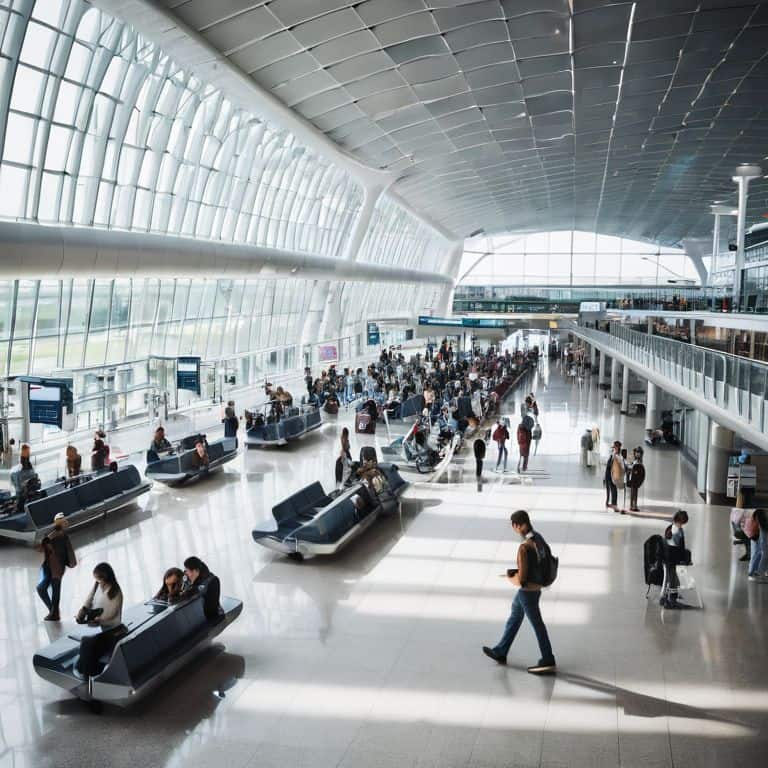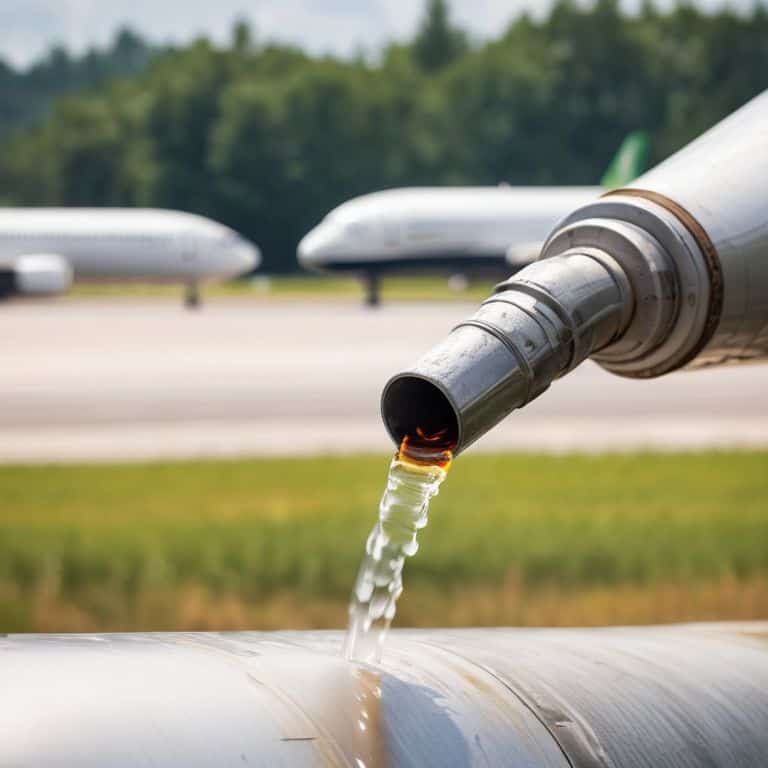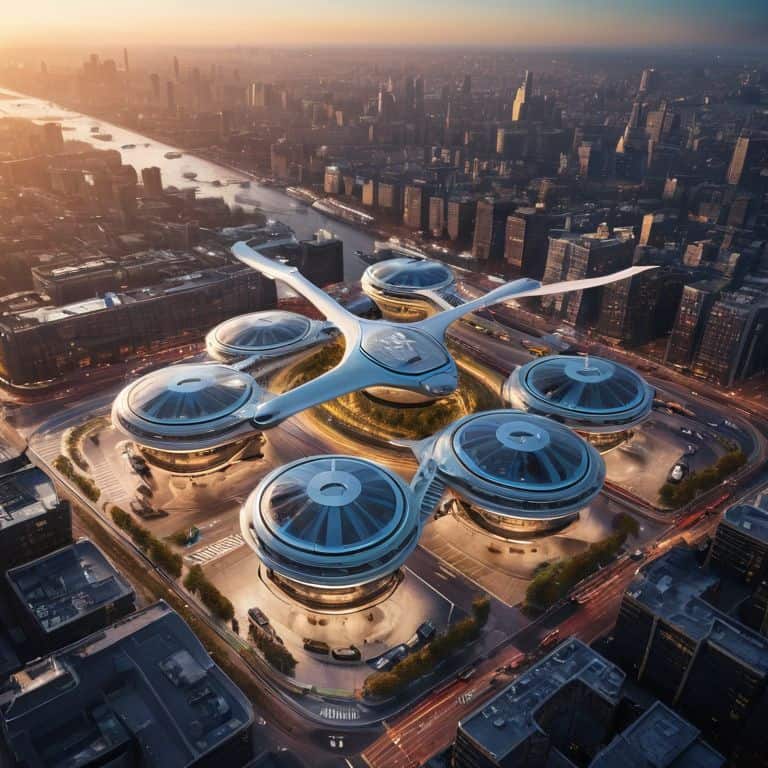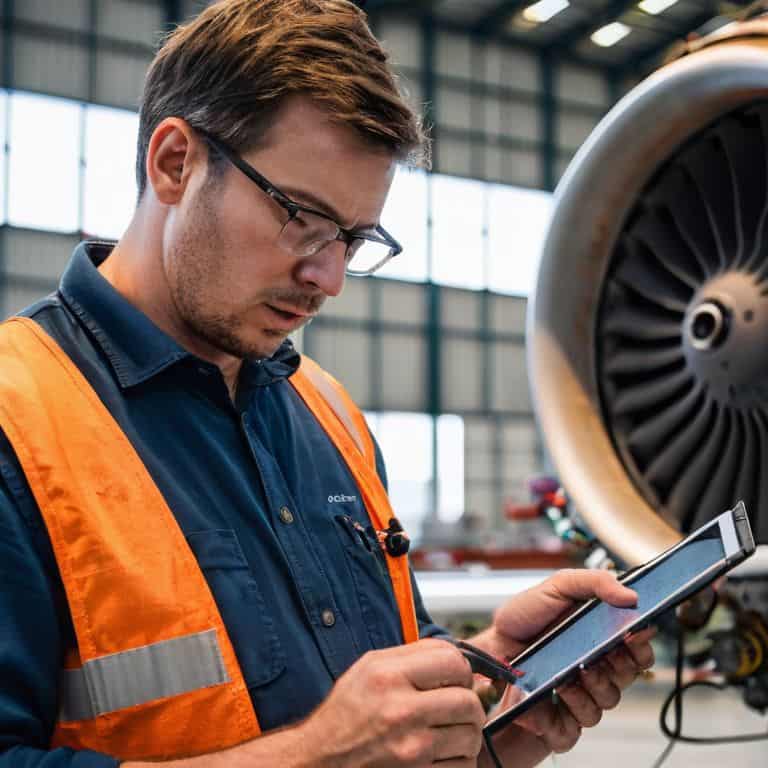I still remember the first time I witnessed the chaos of a poorly managed airport terminal – it was a stark reminder that the future of passenger experience is just as much about the logistics behind the scenes as it is about the sleek designs of the aircraft themselves. As someone who’s spent years consulting for major airports and airlines, I’ve seen firsthand how small improvements in operational efficiency can add up to make a huge difference in the overall flying experience. But despite this, I’ve noticed that many discussions about the future of air travel tend to focus on flashy new technologies or luxurious amenities, rather than the often-invisible systems that truly make or break a passenger’s journey.
As I delve into the world of smarter logistics and innovative design, I want to make one thing clear: my goal is to cut through the hype and provide a realistic, experience-based look at the changes that are truly shaping the future of passenger experience. I’ll be sharing stories from my own work in the field, highlighting successes and setbacks alike, in the hopes of giving readers a genuine understanding of what it takes to create a safer, more efficient, and more enjoyable flying experience. By exploring the intersection of technology, design, and human behavior, I aim to provide actionable insights that will resonate with anyone who’s ever found themselves fascinated by the complex dance of airport operations – and eager to see what the future holds for air travel.
Table of Contents
- Revolutionizing Flight Efficiency
- The Future of Passenger Experience
- Balancing Traveler Data Privacy With Enhanced Security
- Personalized in Flight Meals Meet Next Gen Entertainment
- 5 Key Takeaways for a Revolutionary Passenger Experience
- Key Takeaways for the Future of Aviation
- Shaping the Skies of Tomorrow
- Embracing the Future of Flight
- Frequently Asked Questions
Revolutionizing Flight Efficiency
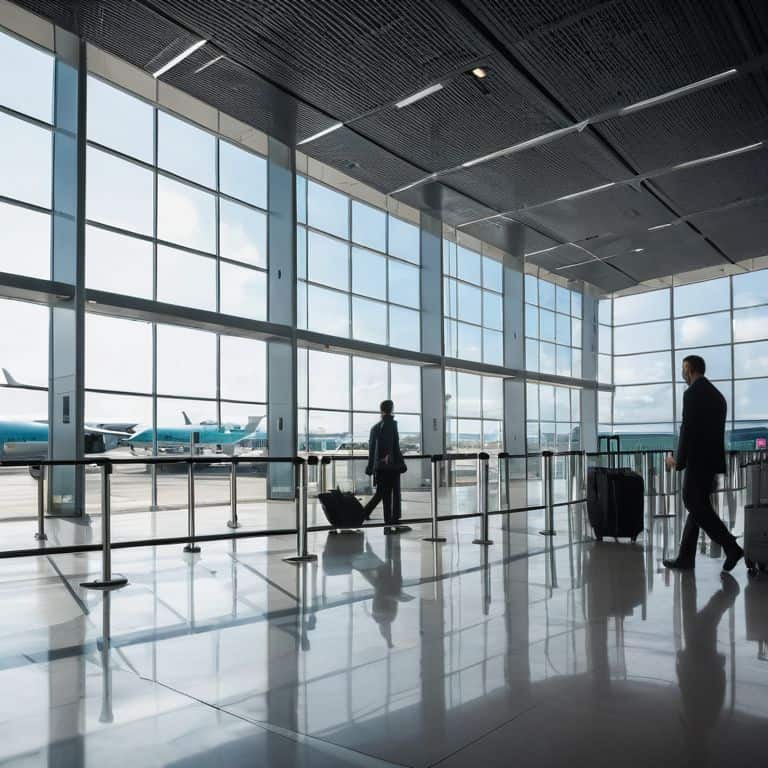
As I delve into the world of aviation, I’m constantly amazed by the seamless travel experiences being created through innovative design and logistics. One area that’s particularly fascinating is the integration of airline digital transformation, which is streamlining operations and making flights more efficient. By leveraging data and technology, airlines can optimize routes, reduce fuel consumption, and minimize delays.
The use of airport biometric security is another significant advancement, allowing for faster and more secure check-in processes. This not only improves the passenger experience but also enables airports to handle increasing volumes of travelers. As a systems consultant, I’ve seen firsthand how these innovations can have a profound impact on the overall efficiency of flight operations. By analyzing traveler data privacy, airlines can better understand passenger behavior and preferences, enabling them to offer more personalized services, such as personalized in-flight meals.
The next generation of inflight entertainment is also on the horizon, with next_gen_inflight_entertainment systems promising to revolutionize the way we experience flight. By providing passengers with immersive and interactive experiences, airlines can create a more enjoyable and engaging journey. As someone who’s passionate about building complex systems, I’m excited to see how these innovations will continue to shape the world of aviation, making flight more efficient, safe, and enjoyable for all.
Airline Digital Transformation Takes Off
As I delve into the world of airline digital transformation, I’m struck by the impact of data-driven decision making on operational efficiency. From predictive maintenance to personalized passenger experiences, the potential for innovation is vast. By leveraging advanced analytics and machine learning, airlines can optimize everything from flight scheduling to in-flight entertainment.
The streamlining of processes is a key area where digital transformation is making a significant difference. By automating routine tasks and integrating systems, airlines can reduce costs, improve productivity, and enhance the overall passenger experience. This, in turn, enables them to focus on higher-value tasks, such as improving customer service and developing new revenue streams.
Seamless Travel Experiences Through Biometrics
As I watch airport ground operations, I’m fascinated by the potential of biometrics to create seamless travel experiences. By leveraging facial recognition and other technologies, airports can streamline passenger flow, reducing wait times and enhancing overall satisfaction.
The use of biometric data is becoming increasingly prevalent, allowing for more efficient security checks and boarding processes. This not only improves the passenger experience but also enhances security, making air travel safer for everyone involved.
The Future of Passenger Experience
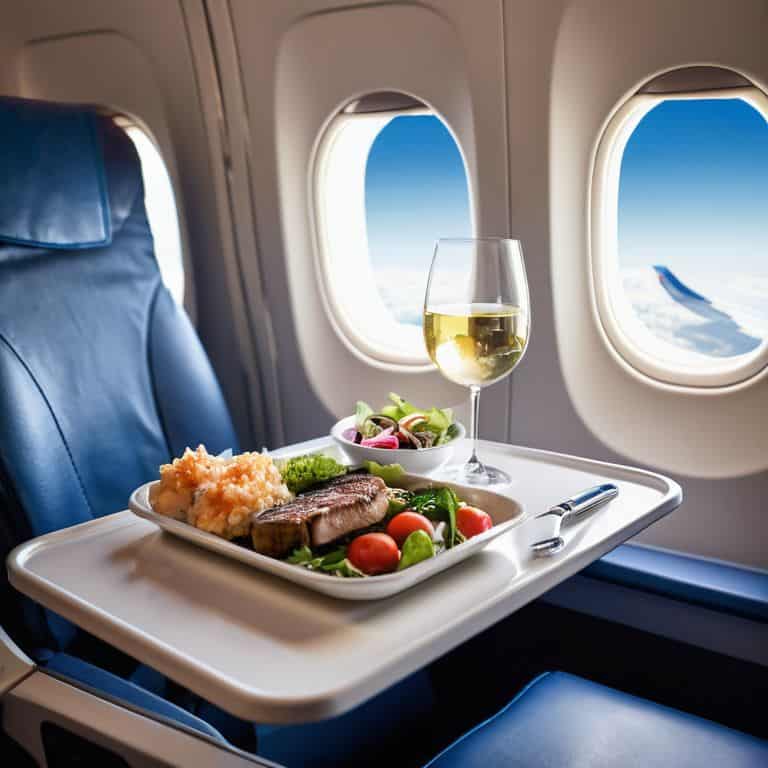
As I delve into the world of aviation, I’m fascinated by the seamless travel experiences that are being crafted through innovative technologies. One aspect that catches my eye is the introduction of personalized in-flight meals, where airlines use data analytics to offer tailored dining options to passengers. This not only enhances the overall flying experience but also showcases the potential of airline digital transformation in making travel more enjoyable.
The integration of airport biometric security is another significant development that’s transforming the passenger experience. By leveraging biometric data, airports can streamline security checks, reducing wait times and making the journey more efficient. This, in turn, allows travelers to focus on the more pleasant aspects of flying, such as exploring next_gen_inflight_entertainment options. As we move forward, it’s essential to prioritize traveler data privacy to ensure that these advancements are made with the passenger’s best interests in mind.
As we look to the future, it’s clear that the intersection of technology and travel will continue to shape the passenger experience. By embracing innovations like biometrics and personalized services, airlines can create a more intuitive and enjoyable journey for their passengers. As someone who’s passionate about the intricacies of aviation, I’m excited to see how these developments will unfold and how they’ll continue to make flying safer, more efficient, and downright enjoyable.
Balancing Traveler Data Privacy With Enhanced Security
As I delve into the nuances of modern air travel, I’m reminded that seamless security is just as crucial as efficiency. The use of biometrics and data analytics has significantly enhanced the travel experience, but it also raises important questions about traveler data privacy.
To strike a balance, airlines and airports must implement robust data protection measures, ensuring that passenger information is safeguarded while still allowing for the benefits of streamlined security checks and personalized services.
Personalized in Flight Meals Meet Next Gen Entertainment
As I explore the evolving landscape of in-flight amenities, I’m excited about the prospect of personalized dining experiences. Airlines are now leveraging data and artificial intelligence to offer tailored meal options, enhancing the overall passenger experience. This shift towards customization is not only a welcome change for passengers but also a strategic move for airlines to differentiate themselves in a competitive market.
The integration of next-generation entertainment systems is another area where airlines are pushing the boundaries. With advanced streaming capabilities, passengers can now enjoy a wide range of content, from movies and TV shows to live sports and music, all from the comfort of their seats.
5 Key Takeaways for a Revolutionary Passenger Experience
- Implementing AI-powered predictive maintenance to reduce flight delays and cancellations
- Integrating biometric technologies for seamless check-in, security, and boarding processes
- Designing personalized in-flight entertainment and meal services based on passenger preferences and data
- Developing sustainable and energy-efficient airport infrastructures to minimize environmental impact
- Balancing advanced security measures with robust data protection policies to safeguard passenger privacy
Key Takeaways for the Future of Aviation
I’ve seen firsthand how airline digital transformation and the adoption of biometrics can revolutionize flight efficiency, making travel seamless and reducing wait times
The integration of personalized in-flight services, such as tailored meals and next-generation entertainment, is raising the bar for passenger experience, but it’s crucial to balance these perks with robust data privacy measures
As someone who’s spent years studying airport operations, I believe the future of aviation hinges on unseen innovations in logistics and systems design, which will ultimately make flying safer, more efficient, and enjoyable for all passengers
Shaping the Skies of Tomorrow
The future of passenger experience isn’t just about flying from point A to point B; it’s about crafting a seamless, personalized, and efficient journey that excites, inspires, and connects people like never before.
Oliver Byrne
Embracing the Future of Flight
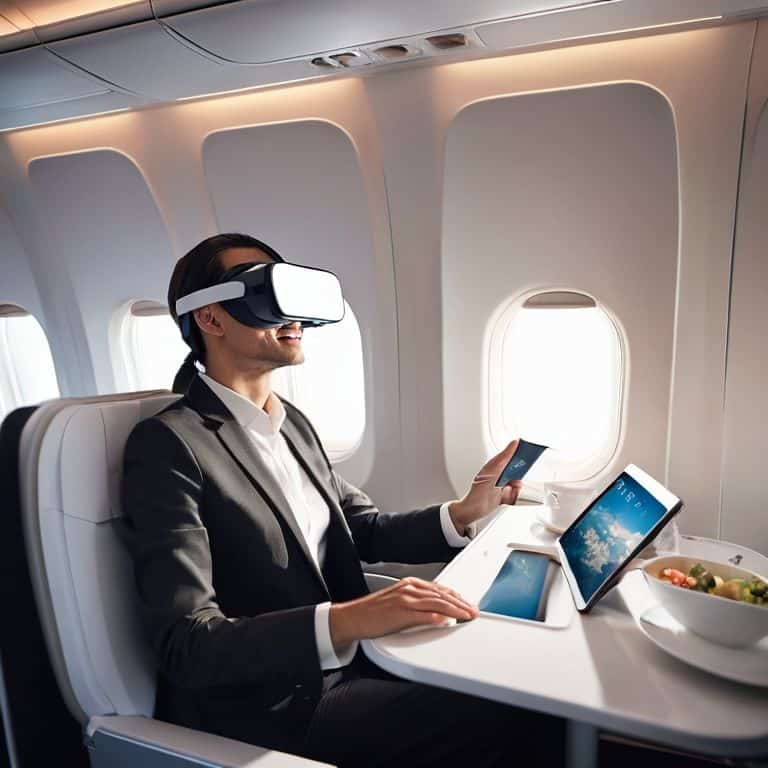
As I reflect on the revolutionary advancements in passenger experience, it’s clear that the future of flight is not just about the planes themselves, but about the seamless integration of technology, logistics, and design. From airline digital transformation to personalized in-flight meals and next-gen entertainment, the industry is undergoing a significant shift. The implementation of biometrics for seamless travel experiences and the balancing of traveler data privacy with enhanced security are just a few examples of the innovative solutions being developed to make flying safer, more efficient, and enjoyable.
As we look to the horizon, it’s exciting to think about what’s possible when we combine human ingenuity with technological advancements. The future of passenger experience is not just about getting from point A to point B, but about creating a holistic travel ecosystem that prioritizes comfort, convenience, and sustainability. As someone who’s passionate about the unseen logistics that make flight possible, I’m eager to see how the industry will continue to evolve and improve, making air travel an experience that’s not just functional, but truly enjoyable for all.
Frequently Asked Questions
How will airlines balance the need for increased security measures with the demand for seamless and efficient travel experiences?
I believe airlines will strike this balance by integrating security measures into the seamless travel experience, using technologies like biometrics and advanced data analysis to minimize friction while maximizing safety, creating a win-win for both security and efficiency.
What role will emerging technologies like AI and blockchain play in shaping the future of passenger experience?
I’m excited to explore how emerging tech like AI and blockchain will enhance passenger experience. AI will optimize flight operations, predict maintenance, and offer personalized services, while blockchain will securely manage traveler data, ensuring seamless and efficient journeys.
How will the integration of biometrics and other digital identity solutions impact the way airports and airlines handle passenger data and privacy?
As I see it, biometrics will streamline passenger flow while raising crucial questions about data privacy. Airports and airlines must balance convenience with robust security measures, ensuring sensitive info is protected. It’s a delicate dance, but with the right systems in place, we can create a seamless, secure experience.
